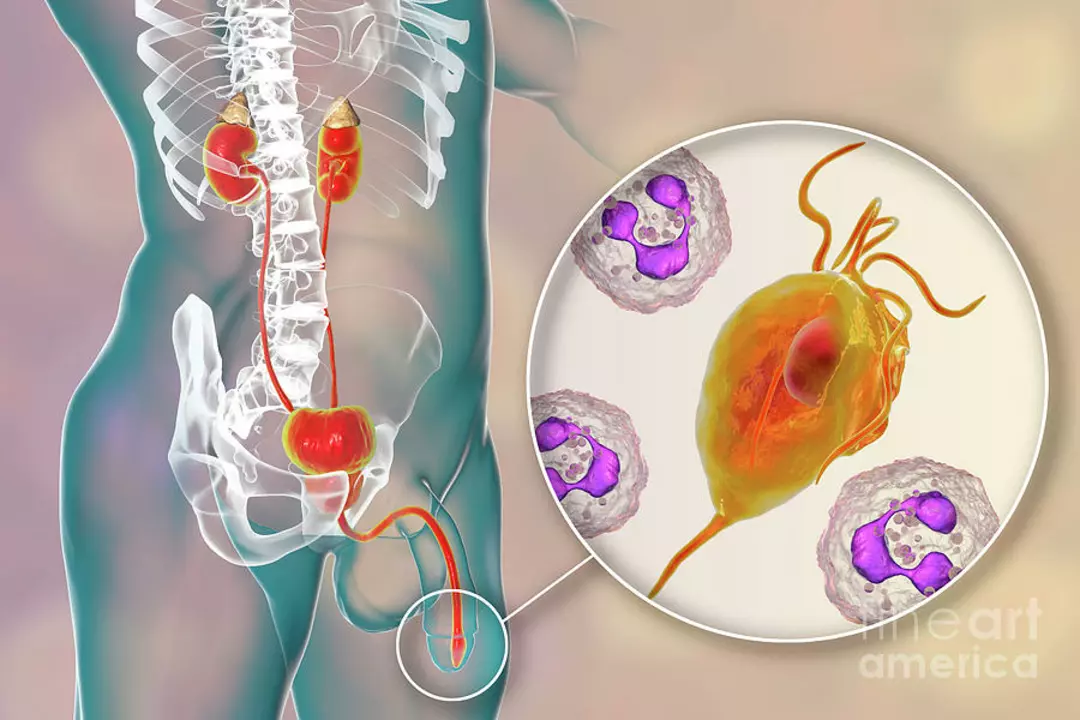As a blogger, I wanted to shed some light on Trichomoniasis and its impact on men's health. Trichomoniasis is a common, yet lesser-known, sexually transmitted infection caused by a parasite. While it often goes unnoticed in men, untreated Trichomoniasis can lead to serious health complications such as prostate issues and infertility. It's important for men to be aware of the symptoms, which may include itching, burning, and discharge, and to seek prompt medical attention if they suspect they might have this infection. Ultimately, practicing safe sex and getting regularly tested for STIs is the best way to maintain good sexual health.
Trichomoniasis: What to Watch For and How to Treat It
Trichomoniasis is a very common sexually transmitted infection caused by the parasite Trichomonas vaginalis. Many people never notice symptoms, but when they do show up, they’re usually uncomfortable—itching, unusual discharge, or pain during urination or sex. If you’ve got new or odd symptoms, testing and quick treatment make a big difference.
Testing & Diagnosis
Testing is simple and fast. For women, a swab from the vagina tested by NAAT (nucleic acid amplification test) is the most accurate. Men can be tested using a urine sample or urethral swab with NAAT. Some clinics still offer a wet mount microscope test, which is faster but less sensitive. If you think you were exposed or have symptoms, ask your provider for NAAT—it's the best way to be sure.
Don’t rely on Pap smears or routine checkups to catch trichomoniasis. Also remember many people—especially men—have no symptoms but can still pass the infection to partners.
Treatment, Partner Care & Prevention
Treatment uses prescription oral antibiotics. The common options are metronidazole or tinidazole. Typical regimens include a single high dose or a seven-day course; you and your clinician will pick what's right for you. Both partners should be treated at the same time to prevent re-infection. Avoid sex until treatment is finished and symptoms are gone.
Important safety note: avoid alcohol while taking metronidazole and for at least 48 hours after the last dose. For tinidazole, wait 72 hours. Mixing alcohol with these drugs can cause nausea, flushing, and rapid heartbeat.
If symptoms continue after treatment, come back for a recheck. Re-testing about three months after treatment is often advised because reinfection is common.
Prevention is practical: use condoms consistently, limit new or multiple partners, and get tested regularly if you or your partner have risk factors. Honest communication with partners and timely testing after exposure reduce spread and stress.
If you’re pregnant or have other health issues like HIV, tell your clinician—treatment choices or timing can change. Pregnant people diagnosed with trichomoniasis should get treatment to lower risks like preterm delivery, but follow medical guidance closely.
Thinking of buying meds online? Only use licensed pharmacies and get a valid prescription. Avoid sites that sell antibiotics without a prescription or hide contact info. Your health is worth a safe, verified source.
If you have heavy bleeding, fever, severe pain, or signs of pelvic infection, seek medical care right away. Otherwise, testing and a short course of prescription treatment will usually clear the infection and get you back to normal life fast.

